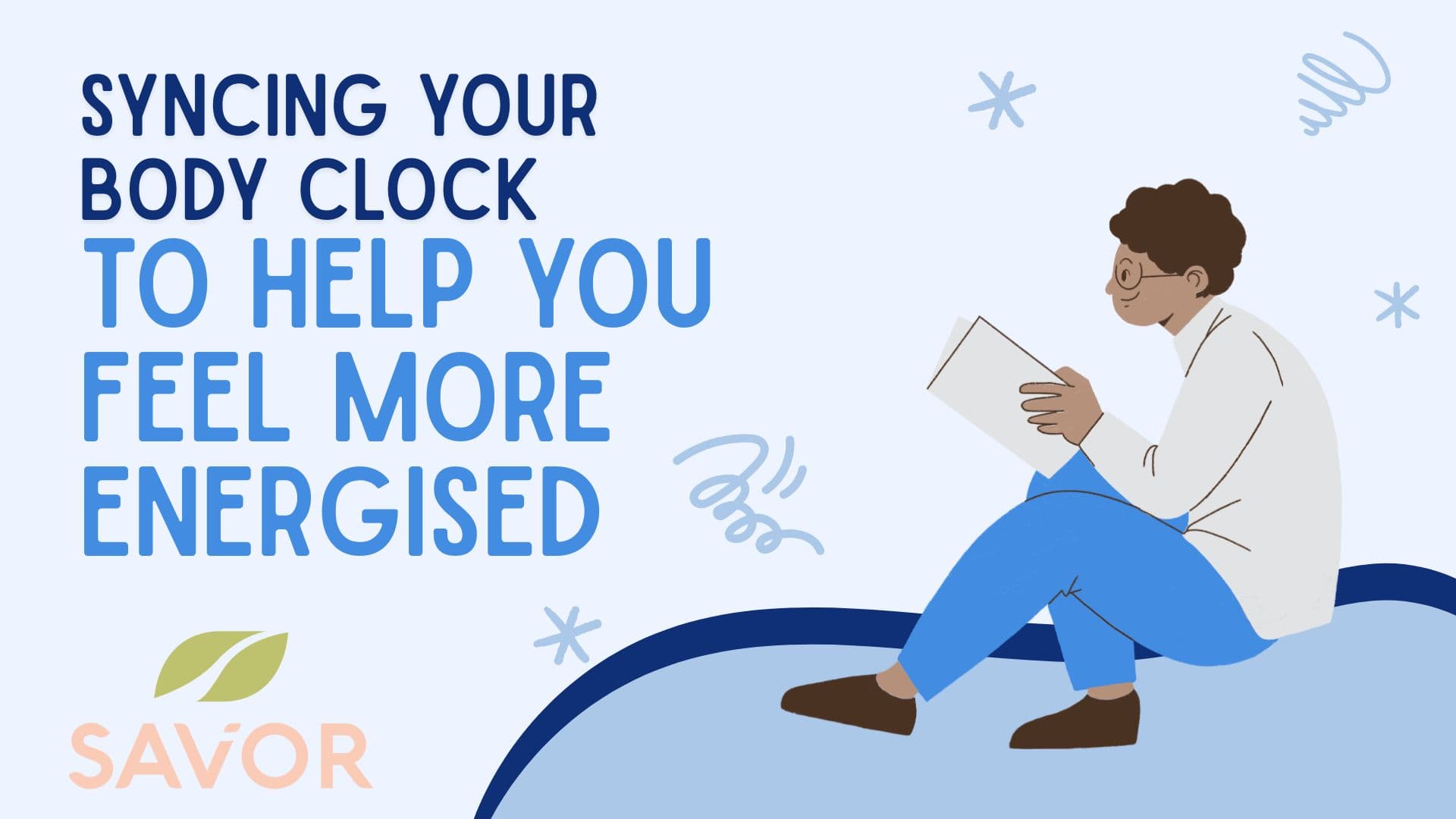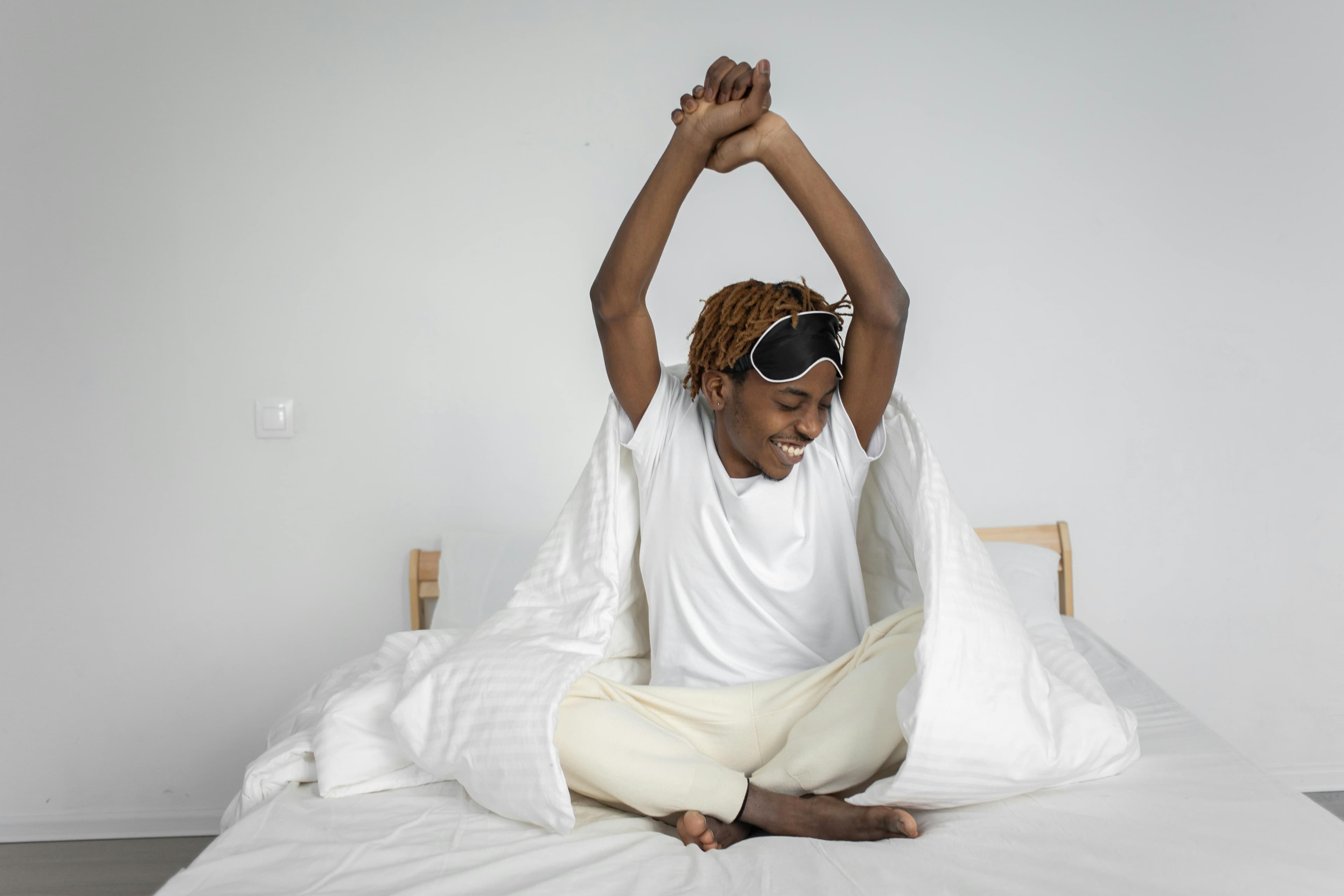Syncing Your Body Clock To Help You Feel More Energised
Do you ever feel tired even after a full night’s sleep? Or maybe you wake up groggy and need a long time to feel awake. If that sounds familiar, your internal body clock, also called your circadian rhythm, might be out of sync.

Syncing Your Body Clock To Help You Feel More Energised
Do you ever feel tired even after a full night’s sleep? Or maybe you wake up groggy and need a long time to feel awake. If that sounds familiar, your internal body clock, also called your circadian rhythm, might be out of sync.
Let’s talk about why syncing your body clock can help improve your sleep and energy, and how to start doing it in a simple way.

What Is the Circadian Rhythm?
Your circadian rhythm is your body’s natural 24-hour clock. It helps decide when you feel sleepy, when you feel awake, and even when your body is best at doing things like digesting food, focusing on tasks, or relaxing.
This rhythm is mostly controlled by light. When your eyes see sunlight, your brain gets the message that it’s time to wake up. When it gets dark, your body starts producing melatonin, the hormone that helps you sleep.

Why It Matters to Sync with Your Body Clock
When your lifestyle matches your body clock, your sleep becomes deeper, and your energy levels during the day improve. But when you fight against your natural rhythm — for example, by staying up late scrolling your phone or sleeping in too long on weekends — your body can get confused.
Experts call this “social jetlag”, and it happens when your body clock gets out of sync with your daily routine. It’s one reason why you might feel fresh on some days and exhausted on others, even if you slept the same number of hours.

How to Sync Your Body Clock Naturally
Here are simple ways to reset and follow your natural body clock:
1. Get sunlight in the morning Try to go outside or sit near a window in the first 1 to 2 hours after waking up. Morning sunlight helps reset your clock and tells your brain it’s time to be alert.
2. Stick to regular sleep and wake times Wake up and go to bed at the same time every day, even on weekends. This helps your body develop a strong rhythm. The more consistent you are, the easier it becomes to fall asleep and wake up naturally.
3. Avoid bright screens at night Your phone, tablet, or TV gives off blue light that tricks your brain into thinking it’s still daytime. Try to reduce screen time at least 1 hour before bed, or use a warm night mode.
4. Eat meals at the same time daily Meal timing also affects your body clock. Try not to eat too late at night, as this can delay your sleep. Aim to have dinner at least 2 to 3 hours before bedtime.
5. Move your body during the day Physical activity, especially in the morning or early afternoon, helps keep your clock running well. But avoid heavy exercise too close to bedtime as it may make it harder to fall asleep.

Don’t Stress If You’re Not Perfect
It’s normal to have days when your routine is off. The key is to be aware and gently bring yourself back. Small changes like waking up 15 minutes earlier or getting sunlight during breakfast can already help.
By syncing with your body’s natural rhythm, you may notice better sleep, sharper focus, and more stable mood and energy. Over time, your body will thank you.
Sources:
Check out Dr. Eddie's social medias for expert health news:
Love great food and exclusive perks? Sign up as a Savor of Life member today and enjoy a FREE Buffalo Cauliflower with your main dish! Don't miss out—join now!
👉 Claim your reward here: Savor of Life Membership Offer
Planning an event? Let Savor of Life bring the flavors to you! From social gatherings to large celebrations, our catering services offer delicious, high-quality meals tailored to your needs.
📅 Book now and make your event unforgettable! → Savor of Life Catering
Ready to transform your wellness with specially made meals? Sign up for our Savor Transform 10-Day Challenge and enjoy exclusive perks, special offers, and unforgettable meals!